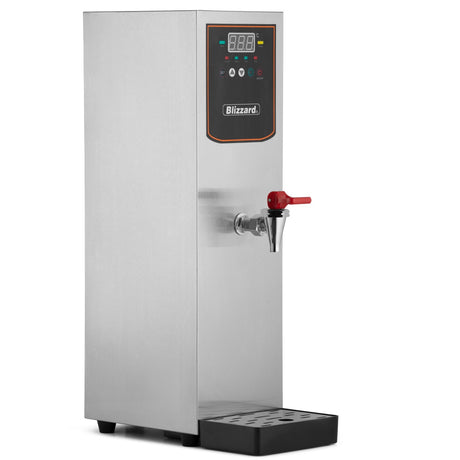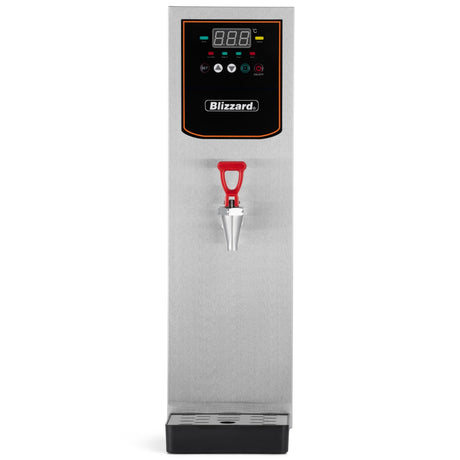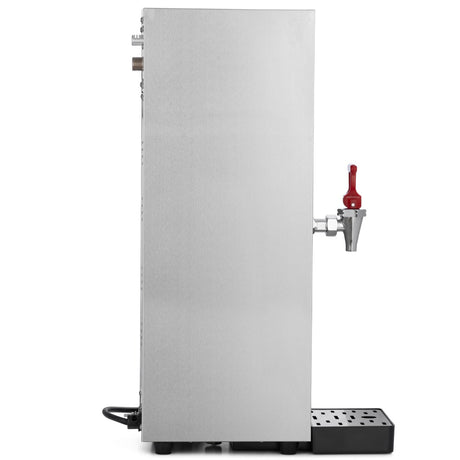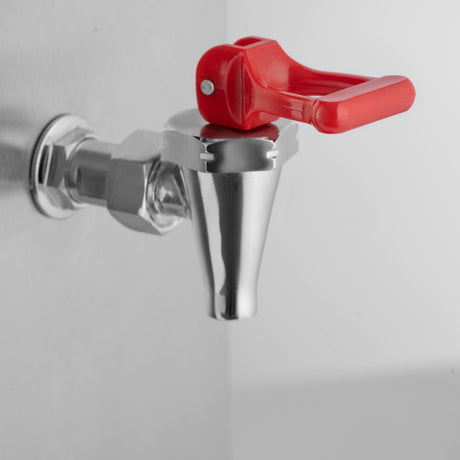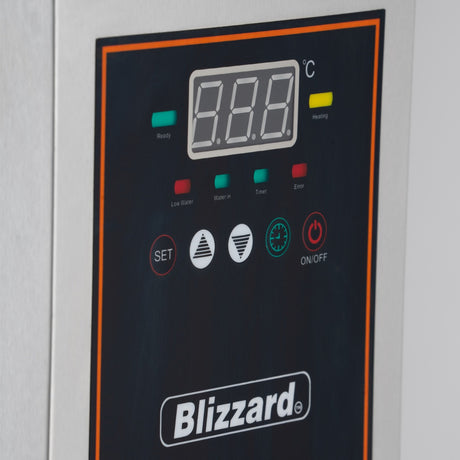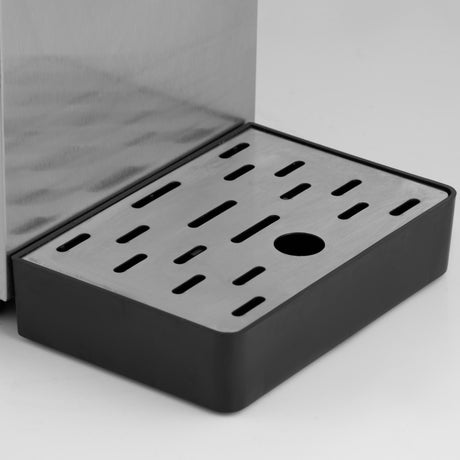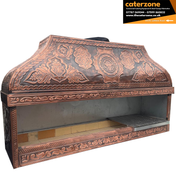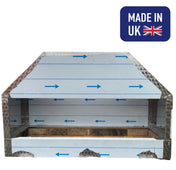- New arrival
Hamoki UK
501003 - Water Boiler - Double Layer 20 Litres
In stock (66 units)Regular price £125.00Unit price /Unavailable - New arrival
Hamoki UK
501004 - Water Boiler - Double Layer 30 Litres
In stock (30 units)Regular price £145.00Unit price /Unavailable - £360.90 offNew arrival
BLIZZARD
In stock (158 units)Sale price £401.00 Regular price £761.90Unit price /Unavailable
Efficient Water Boilers for Your Home and Office
Water boilers are key appliances for hot water in homes and offices. They save energy, time, and money by heating water fast and keeping it at the right temperature. This article will cover the benefits of energy-efficient water boilers, how to install them, and tips for choosing the right model. It aims to help you choose the best water boiler for your needs.
Looking to improve your home's water heating or your office's hot water supply? Energy-efficient water boilers have many benefits. They can lower your utility bills and increase energy efficiency. These appliances can greatly enhance your daily life and work environment.
What is a Water Boiler?
A water boiler is a key appliance in homes and offices. It heats water to a certain temperature. This is useful for making hot drinks, cooking, and other tasks.
Understanding the Function and Purpose
The main job of a water boiler is to provide hot water when needed. It's great for making tea, coffee, cooking pasta, or boiling eggs. Boilers heat water fast and efficiently, making them essential in kitchens and offices.
Types of Water Boilers
There are several types of water boilers to choose from:
-
Electric Water Boilers: These use electricity to heat water. They are easy to use and save energy.
-
Gas Water Boilers: These run on natural gas or propane. They are good for homes or businesses with gas lines.
-
Tankless Water Boilers: Known as "on-demand" water heaters, they only heat water when needed. This saves energy and provides constant hot water.
-
Traditional Water Boilers: These classic models have a storage tank. They are popular for big families or businesses.
Benefits of Energy-Efficient Water Boilers
Energy-efficient water boilers offer multiple benefits, including cost savings on utility bills. These models use less energy while still providing hot water on demand, which results in lower monthly electricity or gas expenses.
Water Boiler Installation Considerations
Installing a new water boiler requires careful planning. You need to think about where to place it, the plumbing and electrical needs, and venting. Each of these factors is important for a safe and successful setup.
-
Proper water boiler placement is essential for accessibility and ventilation.
-
Skilled water boiler plumbing integration is necessary for efficient operation.
-
Adherence to local water boiler electrical requirements is vital for safety.
-
Appropriate water boiler venting is crucial for proper combustion and exhaust.
Choosing the Right Size Water Boiler
Finding the perfect water boiler size is key for your home or office. It ensures top performance and efficiency. The number of people, how often you use hot water, and your space size all play a role.
Determining Heating Load Requirements
To pick the right water boiler, you must calculate the heating load, considering factors such as:
-
The square footage of the area
-
The number of occupants and their hot water usage patterns
-
The desired temperature of the water
-
The climate and insulation of your home or office
Maintaining and Servicing Your Water Boiler
Keeping your water boiler in good shape is key to making it last longer and work better. Regular cleaning and checks can prevent expensive repairs and ensure your water boiler provides reliable hot water.
Water Boiler Maintenance Checklist
-
Schedule annual professional check-ups to spot damage and replace worn-out parts.
-
Clean interior components, such as the heating element and tank, to prevent sediment buildup.
-
Inspect and replace the anode rod periodically to prevent corrosion.
-
Insulate your water boiler and pipes to conserve energy and reduce heat loss.
Water Boiler Troubleshooting Tips
If your water boiler exhibits issues, address them promptly. Common issues and solutions include:
-
Leaks: Inspect for cracks or loose parts; consult a professional if needed.
-
Pilot light issues: Ensure the pilot light is on and adjust the gas supply as necessary.
-
Thermostat malfunctions: Test and replace the thermostat if it’s not maintaining temperature.
-
Sediment buildup: Regularly flush the water boiler to remove sediment and prevent clogs.
Integrating Water Boilers with Smart Home Systems
Smart home technology can change how you use your water boiler. By linking your water boiler to a smart home system, you get more energy savings and convenience. Remote access and adjustable settings can further enhance energy efficiency.
Water Boiler Safety Tips
Keeping your water boiler safe is very important. Always follow the manufacturer's instructions for installation, maintenance, and use. Regular checks can spot problems early, allowing for prompt resolution.
FAQ
What is the purpose of a water boiler?
A water boiler heats water to a certain temperature. It's used for making hot drinks, cooking, and other tasks at home or in the office.
What are the different types of water boilers?
Options include electric, gas, tankless, and traditional water boilers, each offering unique features and benefits.
How can energy-efficient water boilers save on utility bills?
Energy-efficient water boilers use less energy, resulting in lower utility bills and reduced environmental impact.
What factors should be considered when installing a new water boiler?
Placement, plumbing, electrical connections, and venting requirements are key factors for a safe and effective installation.
How do I determine the right size water boiler for my needs?
Consider your household size, hot water usage, and available space to select the appropriate boiler capacity.
How can I maintain and service my water boiler?
Regular cleaning and inspections, along with timely repairs, help extend the boiler’s life and ensure optimal performance.
How can I integrate my water boiler with smart home systems?
Connecting a water boiler to a smart home system enables remote access and improved energy efficiency.
What are the key safety considerations for water boiler operation?
Follow the manufacturer's guidelines, monitor water temperature, and consult professionals for installation and maintenance to ensure safety.







